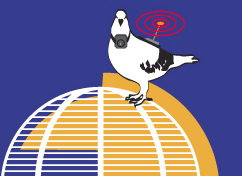China, Wikipedia, education, censorship, content creation This presentation serves as a link into the digital media discourse in China. As such it is not narrowly focused but highlights 3 critical avenues into a more practical oriented discussion suggested by the nature of the ISEA2006 proposal of an Asia-Pacific Summit: censorship, creative industry and education. I see the major challenge to China in terms of its entrance into the era of read/write media. From this perspective the above issues can be looked at in terms of the rocky introduction to wiki/blog culture, user created content/production, and the use of collaborative software in education.
Abstract Wikipedia has been blocked by China's censors for almost one year (as of Feb 1, 2006). Digital arts is an acutely interdisciplinary subject requiring access to a variety of books and journals to keep current in the field. In China, these materials (entirely in English) are especially difficult to attain due to an unusually slow and bureaucratically laden library administration. Another factor is that the English materials are expensive for second and third world countries while budget restraints require that only the most essential materials be ordered. As such, Wikipedia has been a key resource for myself and students at two key digital arts departments in Beijing. In addition to creating a particularly difficult and immediate problem for the development of digital arts in China, there are further interesting paradox's that should be considered. First, China is moving from the slogan of 'Made in China' to one of 'Created in China.' Obviously, government bureaus provide this type of motivational propaganda as a strategy to mobilize economic development, with digital media being a particular emphasis of the Chinese government. The bureaus don't implement the details of these types of campaigns; it is left to education and industry professionals to implement solutions to attain the goal. The situation in China thus presents a particularly challenging signal to its media workers: we should attain this new dynamic creative paradigm without access to current information. Global competition becomes rough. Secondly, Wikipedia is more than an information resource; it is a successful methodology for content creation - user created and maintained. The wiki-dology fosters communities and complex factors to mediate these communities in terms of both culture, economy and new technologies. Wikis and blogs are open authoring environments; a situation which can't be maintained in a highly controlled media situation. Is China going to be able to weather this problem? A broadly creative and participatory user base has propelled the rise of the digital economy in the West. China's strategy will be to rely on advanced filtering, an elite authoring class, while encouraging and rewarding harmless, market-driven pop cycles for adolescents to flourish. The author uses a combination of wikis, blogs, listservs and online forums as a university course management system - like a traditional medicinal blend of information systems. Students take to the self-determined media environment very cautiously. To grow the environment requires a sense they aren't familiar with. To cooperate in a multiuser, expansive and cybercratic situation is an even more daunting task that leaves the student lost. |
